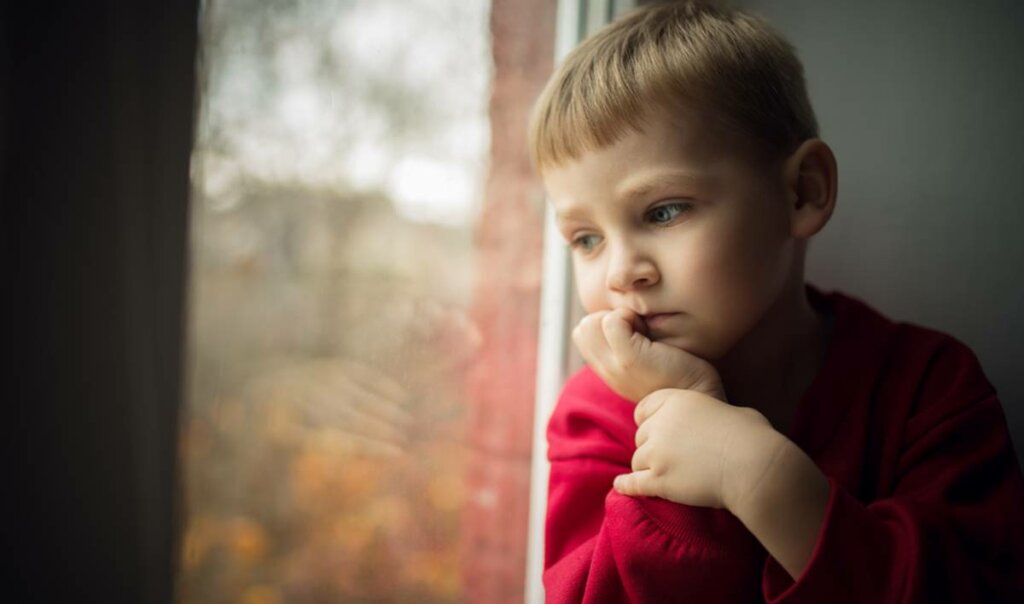Why Some Mothers Don't Love Their Children


Written and verified by the psychologist Valeria Sabater
Some children don’t love their parents. There are also fathers who treat their children with contempt, and mothers who don’t love their children. However, this last instance appears to completely go against the natural law that suggests that there’s no purer and more unconditional love than that between parent and child. Yet, it happens.
Within this sphere of disaffection, lies the strange figure of the emotionally cold mother. In fact, the absent mother who moves away from her expected script really attracts our attention. Somehow, we associate motherhood with an exquisite kind of nurturing and welcoming tenderness. Indeed, mothers generally exhibit unconditional love and will do everything for their children. Therefore, when this doesn’t happen, it destroys all of our ingrained ideas.
However, there’s no doubting the evidence. As a matter of fact, there are many people who go through their lives with these kinds of wounds. They find the questions piling up in their minds (“Why did they behave like that?” “Did I do something wrong to make them not love me?”). In their hearts, they also carry feelings that range from guilt to anger toward their mothers.
As a rule, they accumulate problems, insecurities, and serious shortcomings. Let’s find out more.

Why some mothers don’t love their children
Some claim that mothers who don’t love their children show a lack of maternal instinct. But, what is this maternal instinct? Is there really a natural and unconscious impulse orchestrated by nature to love and care for a child? In reality, science hasn’t yet found any proof.
As a matter of fact, there are elements of greater importance that go beyond the controversial genetic hypothesis. To begin with, there are mothers who do love their children but love them badly or in their own way. In fact, everyone understands love in a different way and some people exhibit a cold kind of affection, prioritizing the fact that their children are always neat, go to good schools, learn to obey, and say please and thank you at an early age.
However, alleviating children’s fears, showing them affection, listening to them and answering their questions, comforting them, encouraging their dreams, and making them feel safe is of extreme importance. If these actions are missing, everything fails. It doesn’t matter that a mother ‘loves them in her own way’. If these emotional aspects aren’t addressed, children grow up with the clear conviction that they’re not worthy of their mothers’ love.
Let’s take a look at the factors that contribute to mothers not loving their children.
1. They regret being a mother
It happens sometimes. Indeed, some couples have children because they feel they have to as it’s the logical next step to take in their relationship. They don’t even consider if they really want to be parents. Or, an unexpected pregnancy arises, one that’s not really wanted but allowed to continue.
At other times, something more complex happens: they want to have children, but once they become aware of what it entails, anguish, stress and even unhappiness arise.
In many cases, the mother’s regret and wish for another kind of life hover over the children’s heads.
2. The depressed mother who hasn’t resolved her own traumas
One reason for a mother not loving their children is an unattended psychological problem. Post-traumatic stress as a cause of an event experienced in childhood or youth, undetected depression, anxiety disorders, and also mental illnesses that aren’t treated completely interfere with the upbringing of children.
Internal suffering encapsulates them and it’s extremely difficult for them to care for and love others when they’re suffering from deep wounds and inner problems themselves.
3. The long shadow of narcissism
Some mothers are narcissistic. While some only exhibit a few traits of this type of personality, others suffer from narcissistic personality disorder. This is a clinical condition with serious implications and consequences.
Mothers like this cause serious effects on the upbringing and education of children. In fact, they cause family dynamics of control and emotional manipulation.
These kinds of mothers underestimate and prey on their sons and daughters to try to meet their own needs. They project their desires onto them and completely dominate them.

4. The favorite child
One of the reasons why there are mothers who don’t love their children is preferential love. These are situations in which their affection has a limited and nominal quota. It’s usually focused on only one of the children and not the others. They’re the golden children, those figures who, for whatever reason, get all the recognition and reinforcements, leaving nothing for the rest.
Consequently, the siblings end up in a scenario where they end up competing for their mother’s love. This is capable of generating conflicts and lifelong wounds in them.
5. Many mothers have a negative image of themselves that they transmit to their children
If mothers can’t love themselves or have developed a negative conception of themselves and their bodies, and extend this shame and negativity to their children, they can’t transmit love and tenderness to them.
6. Unworked emotions
Providing affection or establishing bonds is the result of time. Above all, it involves a great deal of work at the behavioral and emotional levels. This means that when a woman isn’t too well, psychologically, they find it difficult to be in contact with others or to take charge of a young child.
7. Having children reminds parents that time is passing
This can cause tension and even resentment in mothers and a defensive and self-protective withdrawal from the anguish of death. It can be either directly or indirectly harmful to children.
8. Parents tend to use their children as existential projects
As a mechanism to defend themselves against their anguish in the face of death, some mothers seek to continue living through their offspring. To fulfill this purpose, children must replicate the attitudes and choices that they make. If they differ, their actions are misconstrued as defiance. The children in this situation aren’t loved but merely used as existential projects.
In conclusion, these are situations of complex and immense dimensionality. So much so, that there are many people who reach adulthood with poorly resolved experiences and the kind of suffering that limits their lives, dreams, and even their human potential. Psychological care in these situations is a priority.
All cited sources were thoroughly reviewed by our team to ensure their quality, reliability, currency, and validity. The bibliography of this article was considered reliable and of academic or scientific accuracy.
- Carvajal, C. (2002). Trastorno por estrés postraumático: aspectos clínicos. Revista chilena de neuro-psiquiatría, 40, 20-34.
This text is provided for informational purposes only and does not replace consultation with a professional. If in doubt, consult your specialist.








